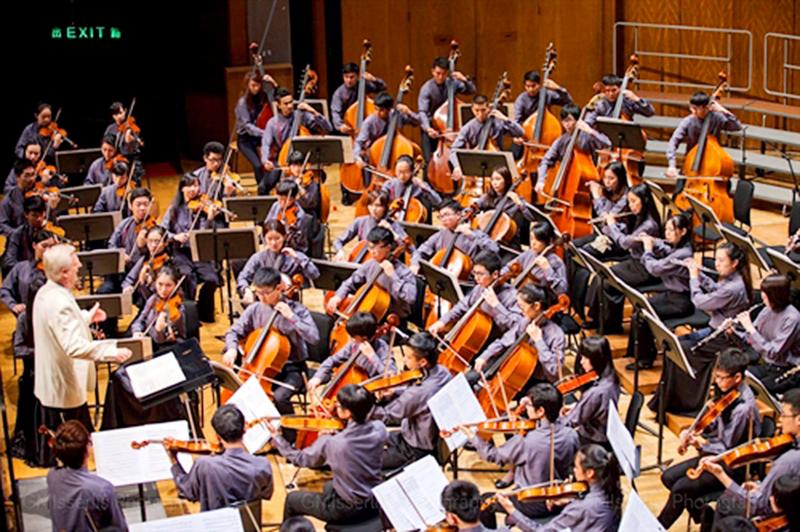Taiwan has scored an exceptional success in this year’s auditions for the Asian Youth Orchestra.
Out of a total 103 placements on the orchestra, young instrumentalists from Taiwan won an unprecedented 38.
Nowhere else compares. Japan and South Korea came closest, with 14 successes each. China got nine, with Hong Kong (considered separately from China for the purposes of this competition) also gained nine successes.

Photo courtesy of the Asia Youth Orchestra
The orchestra assembles for six weeks every year, rehearsing and then going on a local tour.
Unfortunately, the rehearsal period and tour have had to be postponed for this year because of the coronavirus emergency. But the musicians who won places this year will have their places reserved for next year, and for them no further auditions will be necessary.
“Circumstances dictated that we auditioned by video,” said Richard Pontzious, the orchestra’s artistic director, founder and conductor. “It worked out surprisingly well.”
The annual concerts are highly esteemed in the classical music world, and membership in the orchestra is keenly sought after. Taiwan’s success of 38 is astonishing by any standards, and confirms Taiwan’s pre-eminence in the Asian classical music world.
The successful competitors comprise nine violinists, seven viola players, seven cellists, five double-bass players, two oboe players, two horn players, one flautist, one clarinetist, one bassoon player, one trumpeter, one harpist and one tenor-trombone player.
Their names can be found on www.asianyouthorchetra.com.

Exceptions to the rule are sometimes revealing. For a brief few years, there was an emerging ideological split between the Democratic Progressive Party (DPP) and Chinese Nationalist Party (KMT) that appeared to be pushing the DPP in a direction that would be considered more liberal, and the KMT more conservative. In the previous column, “The KMT-DPP’s bureaucrat-led developmental state” (Dec. 11, page 12), we examined how Taiwan’s democratic system developed, and how both the two main parties largely accepted a similar consensus on how Taiwan should be run domestically and did not split along the left-right lines more familiar in

As I finally slid into the warm embrace of the hot, clifftop pool, it was a serene moment of reflection. The sound of the river reflected off the cave walls, the white of our camping lights reflected off the dark, shimmering surface of the water, and I reflected on how fortunate I was to be here. After all, the beautiful walk through narrow canyons that had brought us here had been inaccessible for five years — and will be again soon. The day had started at the Huisun Forest Area (惠蓀林場), at the end of Nantou County Route 80, north and east

Specialty sandwiches loaded with the contents of an entire charcuterie board, overflowing with sauces, creams and all manner of creative add-ons, is perhaps one of the biggest global food trends of this year. From London to New York, lines form down the block for mortadella, burrata, pistachio and more stuffed between slices of fresh sourdough, rye or focaccia. To try the trend in Taipei, Munchies Mafia is for sure the spot — could this be the best sandwich in town? Carlos from Spain and Sergio from Mexico opened this spot just seven months ago. The two met working in the

This month the government ordered a one-year block of Xiaohongshu (小紅書) or Rednote, a Chinese social media platform with more than 3 million users in Taiwan. The government pointed to widespread fraud activity on the platform, along with cybersecurity failures. Officials said that they had reached out to the company and asked it to change. However, they received no response. The pro-China parties, the Chinese Nationalist Party (KMT) and Taiwan People’s Party (TPP), immediately swung into action, denouncing the ban as an attack on free speech. This “free speech” claim was then echoed by the People’s Republic of China (PRC),